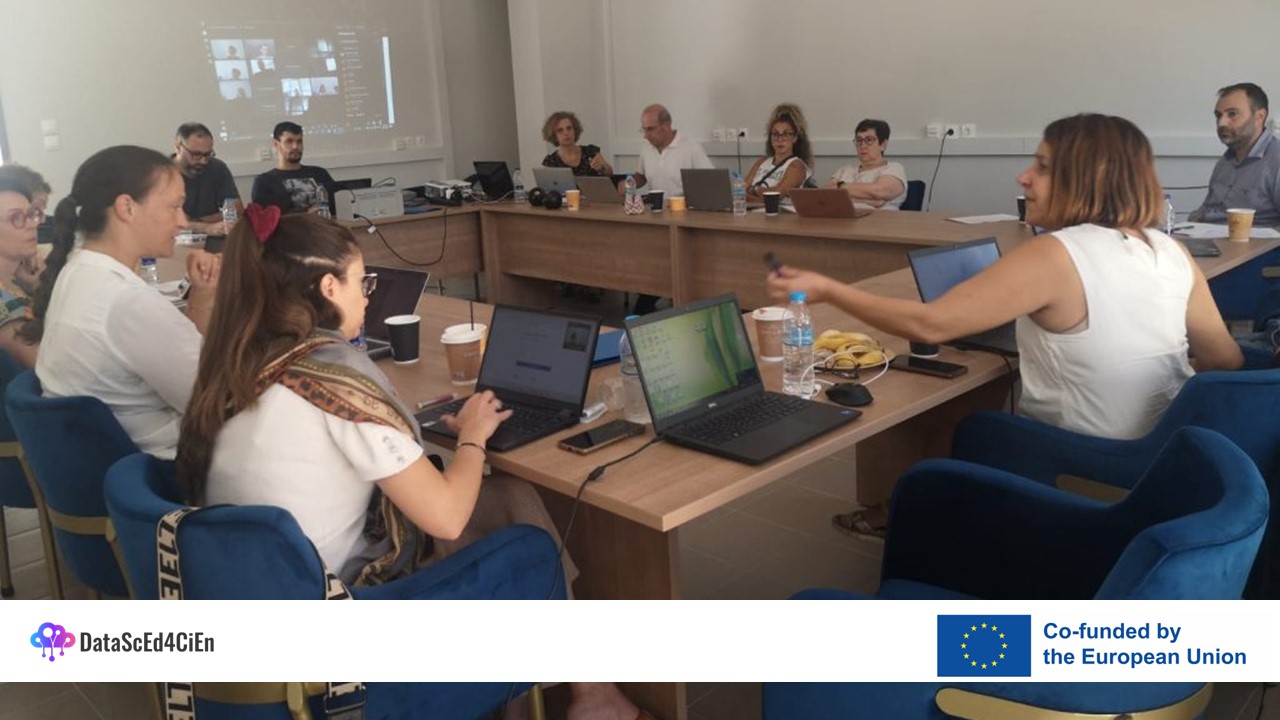Day 1: Theoretical Foundations & Digital Tools
The first day covered key theoretical aspects, including:
The first day covered key theoretical aspects, including:
- Civic Engagement for Social Justice – Understanding how to identify societal problems and formulate relevant statistical questions (Limerick & EUC).
- Pedagogical Aspects of STEAM – Exploring design thinking, project-based learning, and STEAM-based approaches to enhance classroom engagement (Limerick & EUC).
- Introduction to Data Science – Learning data management and cleaning techniques, as well as methods for identifying relevant datasets (Münster & Limerick).
- Digital Data Exploration – Hands-on training with CODAP for data visualization and analysis (Münster & Limerick).
- STEAM Scenario 1: Poverty – Participants worked in small groups to explore the first STEAM scenario, applying data analysis to understand poverty-related issues (LSBC & ES).
Day 2: STEAM Scenarios & Classroom Adaptation
The second day focused on practical application and classroom integration:
- STEAM Scenario 2: Climate Change & Drought – Exploring an interactive learning experience related to environmental challenges (LSBC & ES).
- Adapting Scenarios for the Classroom – A collaborative session to refine and implement the STEAM scenarios in educational settings.
- Reflection & Next Steps – Concluding discussions on future applications and project goals (All partners).
This training fostered a deeper understanding of data science in STEAM education and provided valuable tools for integrating data-driven, problem-based learning into classrooms.
